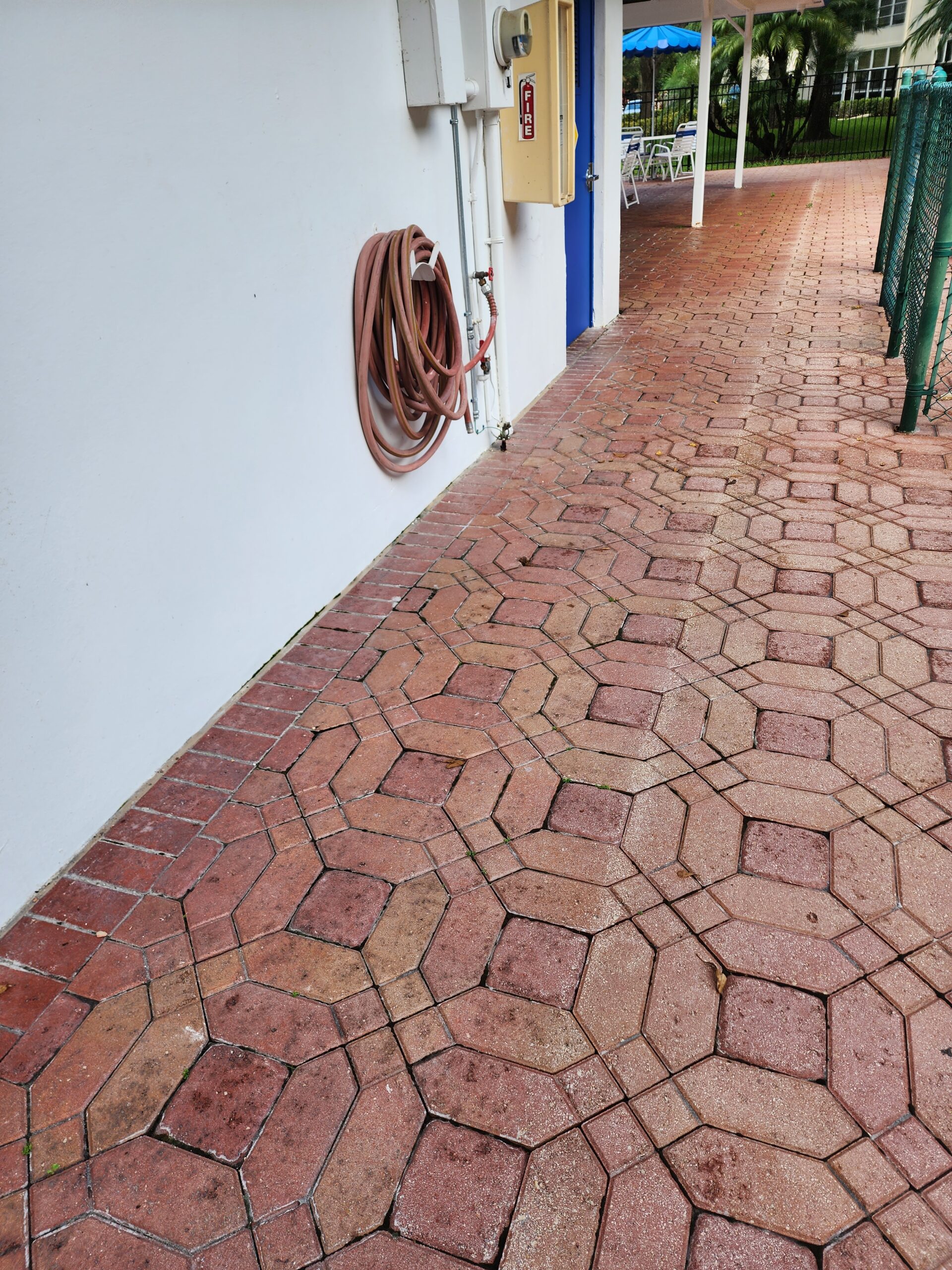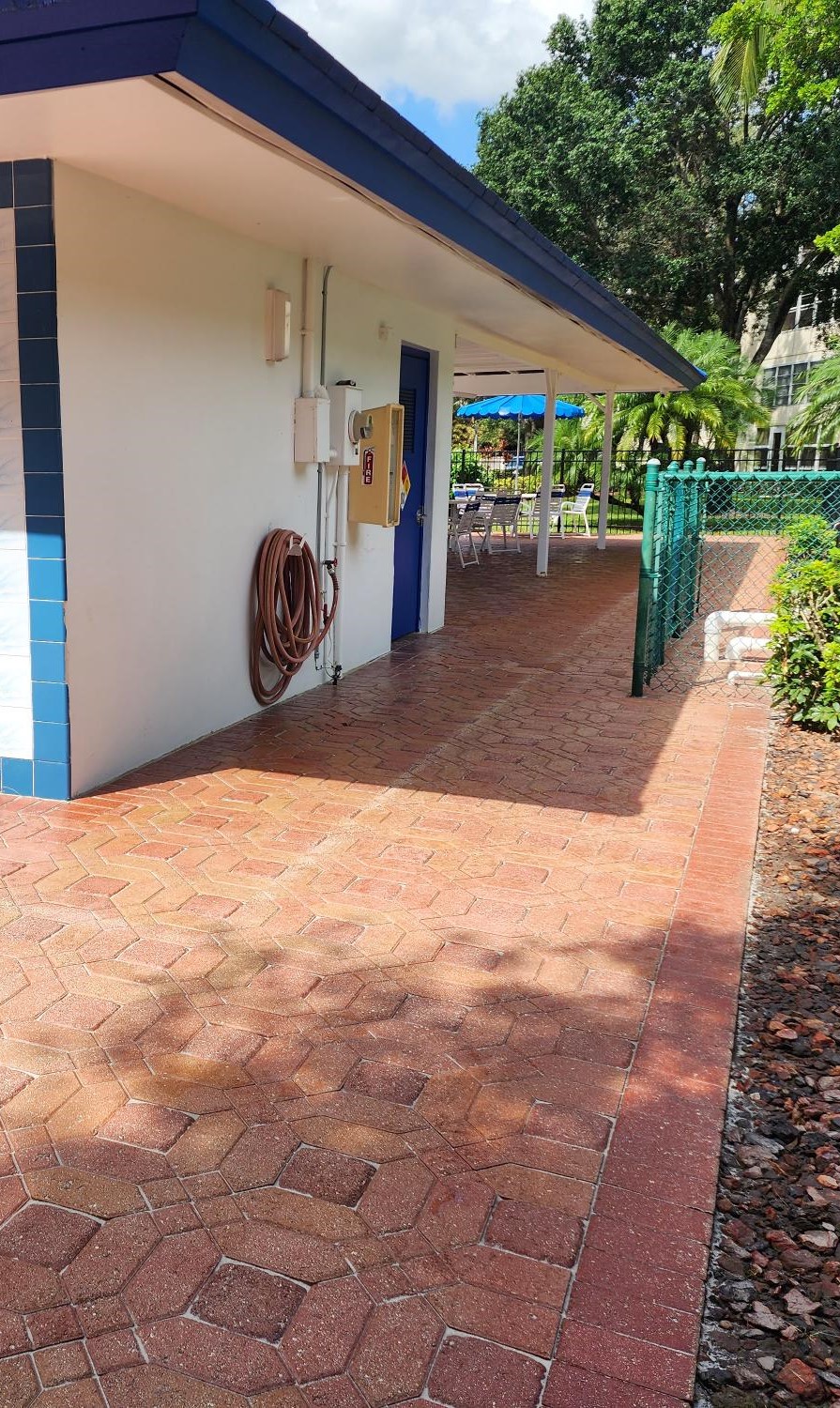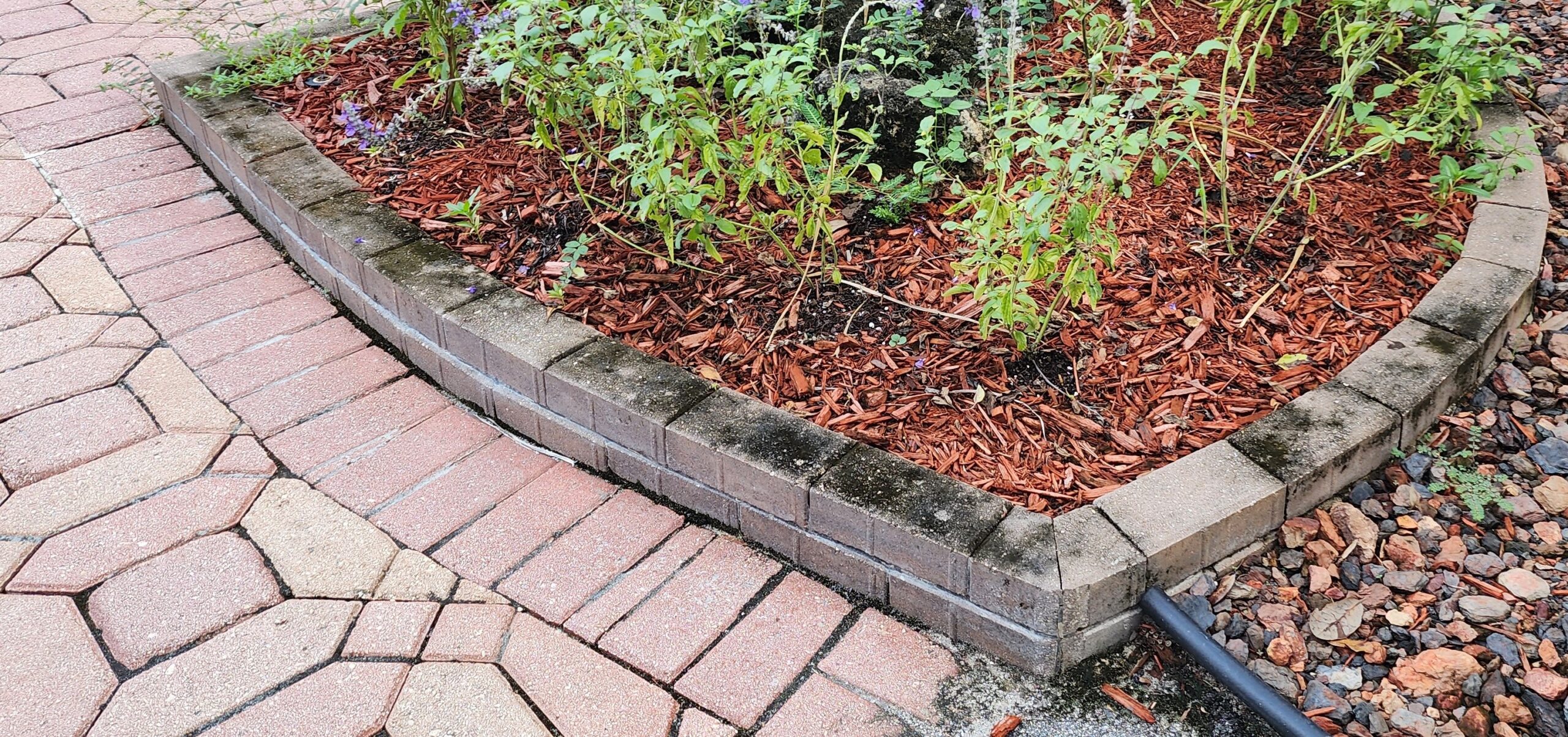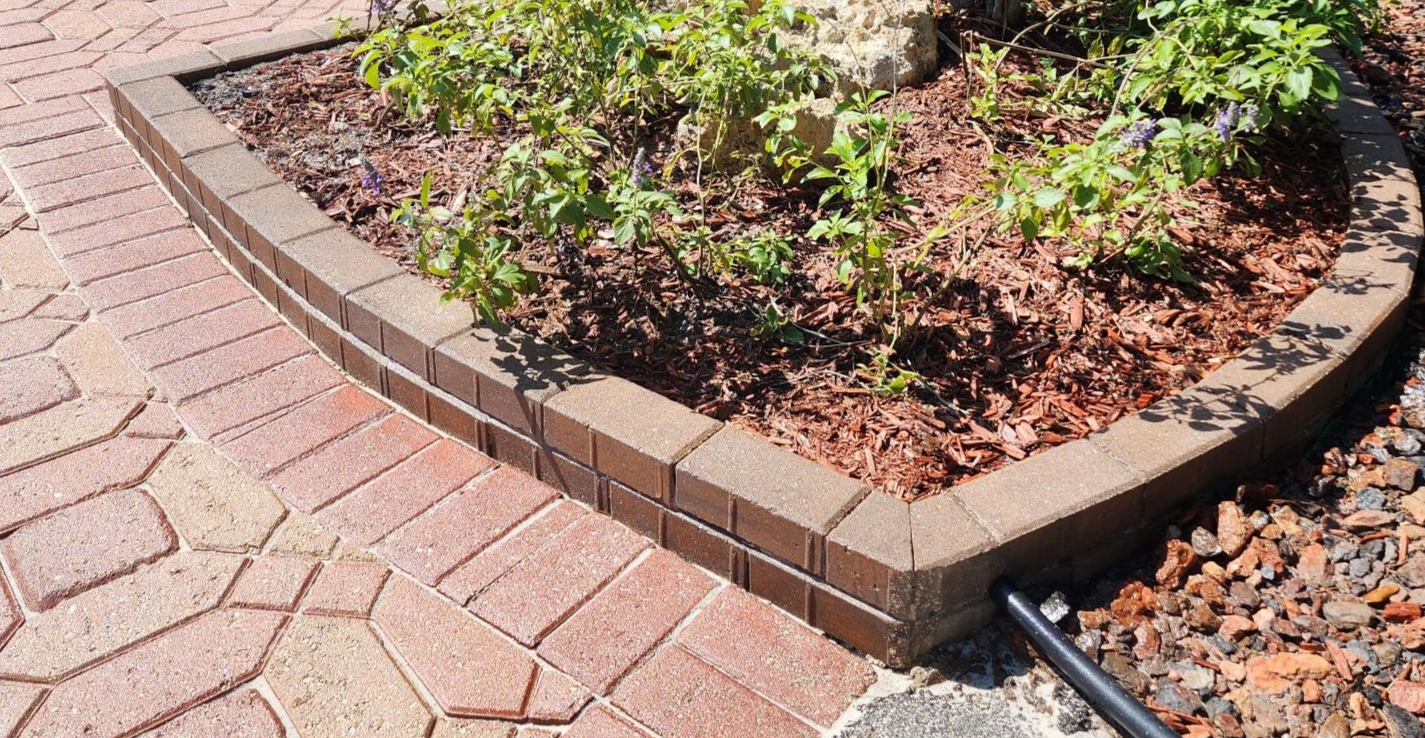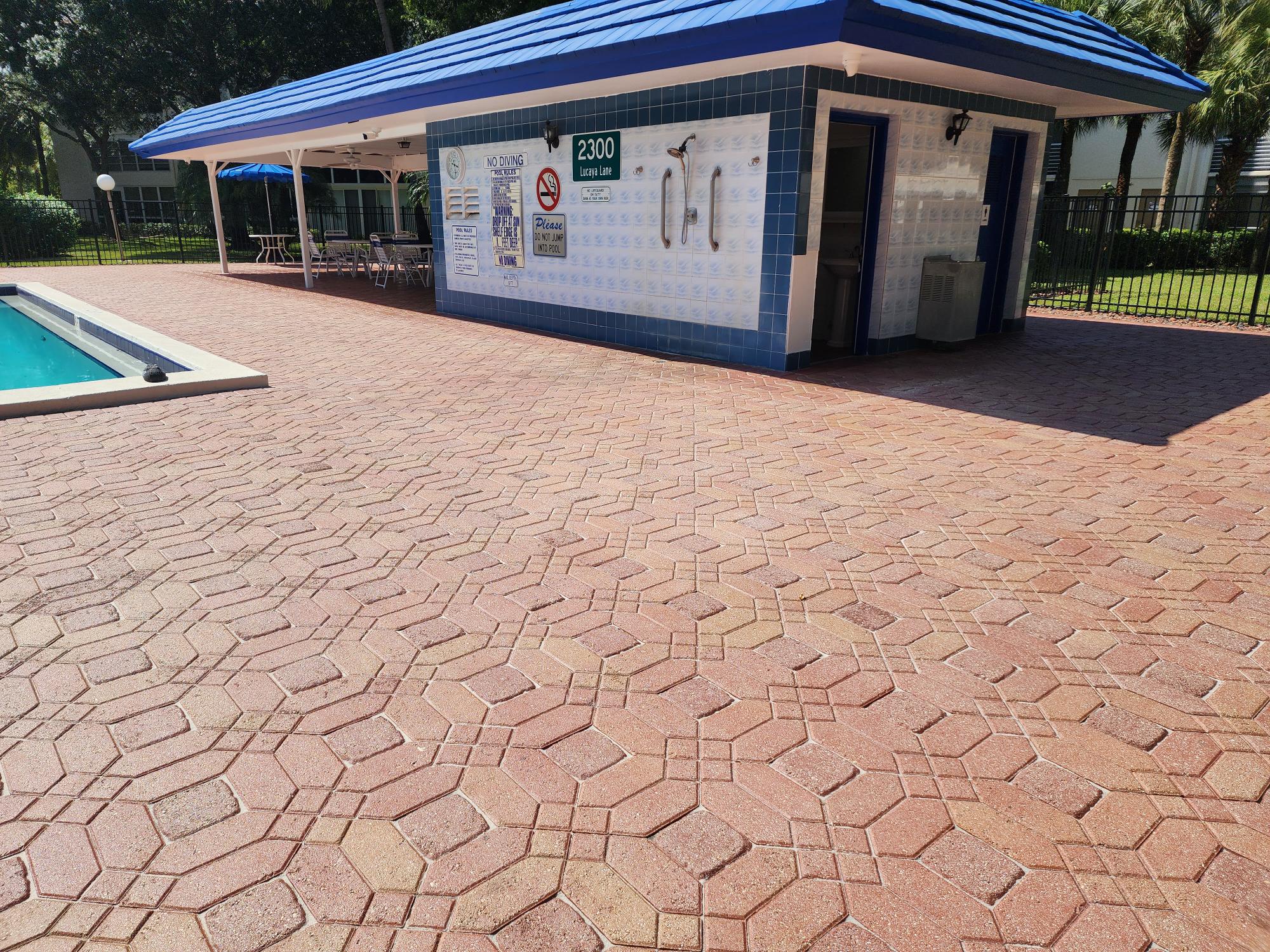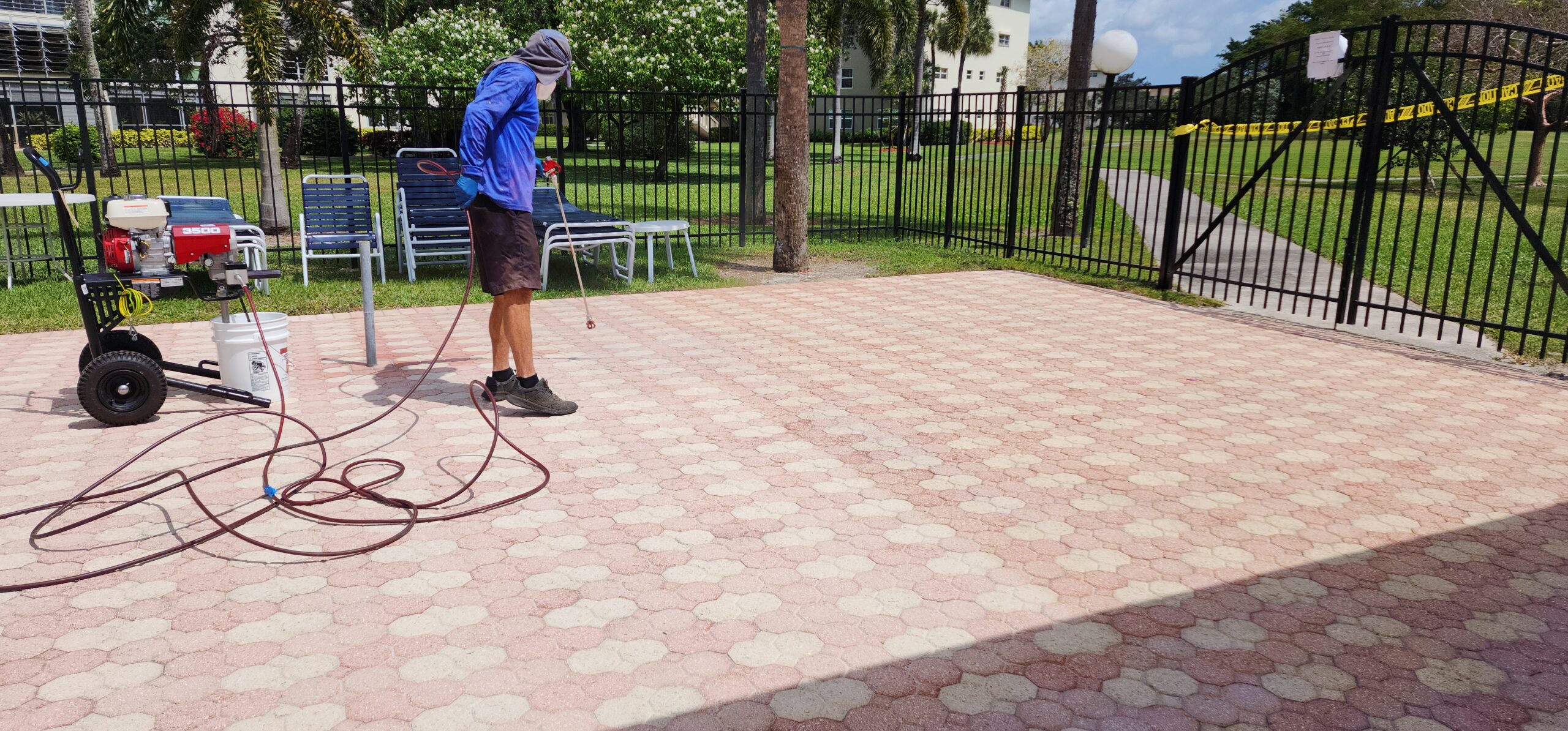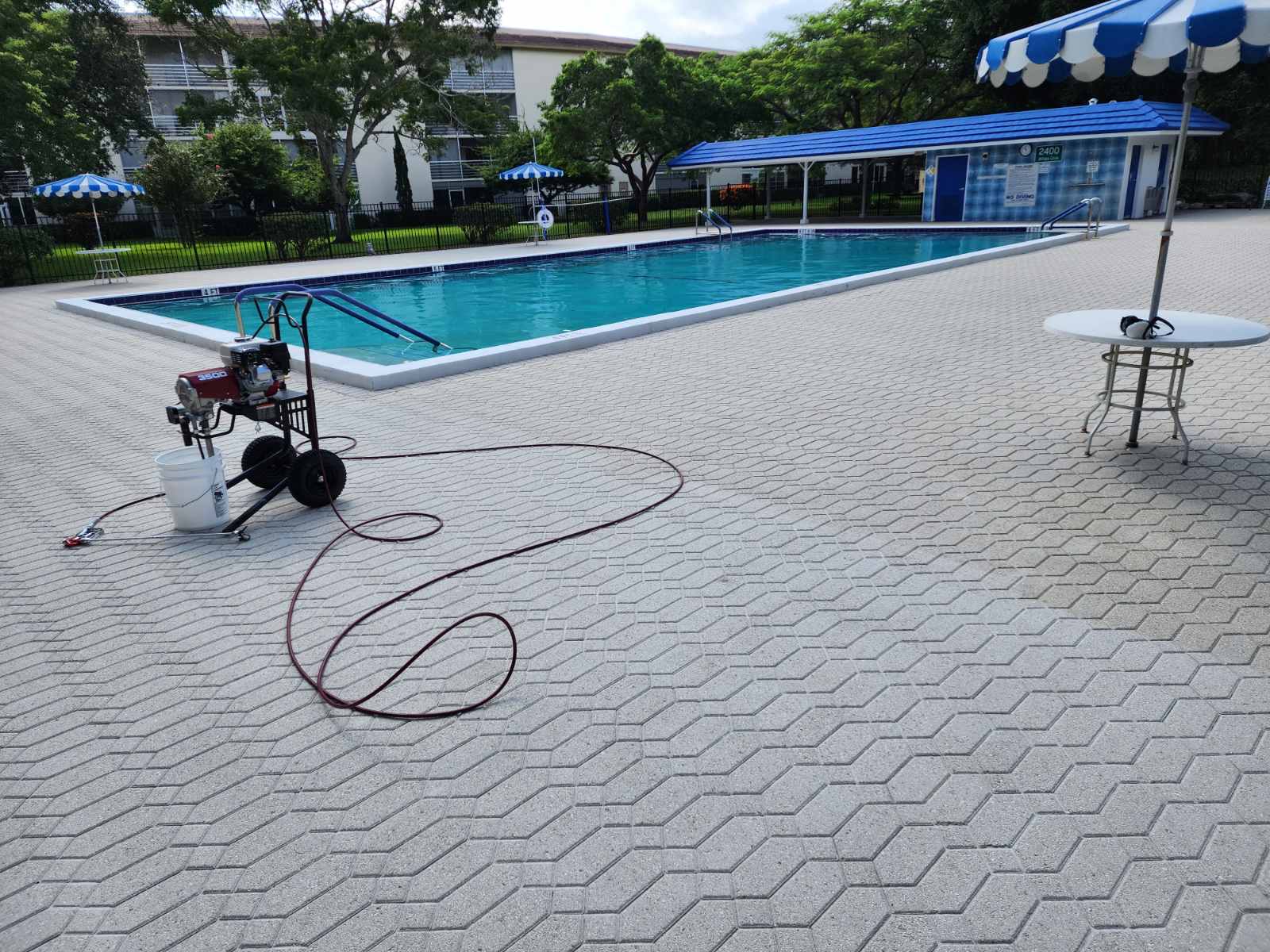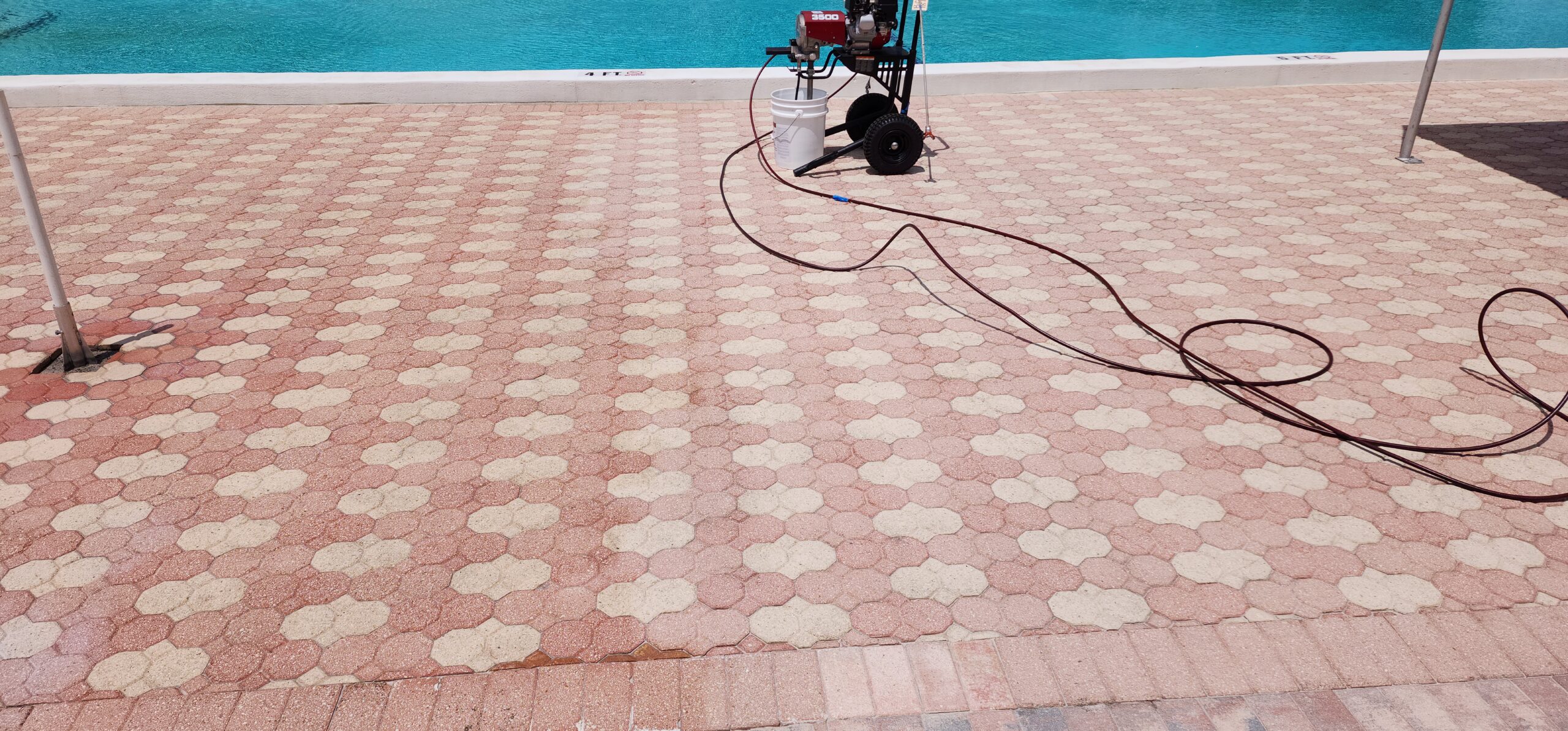Why Cleaning Is Necessary For Your Exteriors
Cleaning is a vital aspect of building maintenance that helps to restore the original look and feel of your outdoor living spaces. Over time, surfaces accumulate dirt, grime, and other types of debris, which can make them slippery and unsafe to walk on.

Enhances Aesthetic Appeal

Maintains Safety

Protects Your Investment

Prevents Staining

Contributes to Overall Home Maintenance

Prevents Weed Growth and Pest Infestation
Soft Washing vs. Pressure Washing: How to choose?
Choosing the right washing method for different parts of your house matters. While people use pressure washing and soft washing interchangeably, these techniques differ in several ways.
Let’s look at pressure washing vs. soft washing, explain the key differences, and detail what to consider when choosing between the two.
What is Soft Washing?
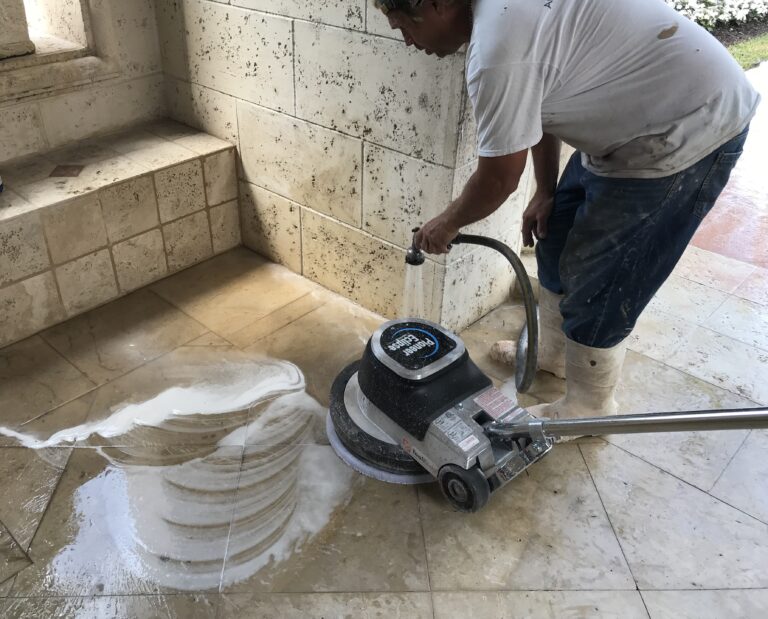
Soft washing uses a pump sprayer to effectively clean exterior surfaces using a combination of water spray and chemicals. The typical pressure of the sprayer is between 150–300 PSI.
The types of cleaning chemicals and surfactants used to achieve the desired results might include sodium hypochlorite (bleach), sodium hydroxide, algaecides, and plain old water. Neutralizers are often used in combination with chemicals to minimize the negative effects of runoff on plants and the environment.
The best solution is switching to bio-degradable or less toxic chemicals. This doesn’t mean compromising effectiveness. We take cleaner that’s not just powerful, but also degrades naturally over time. At our company, we use eco-friendly cleaning solutions that are safe for children, pets, and the environment.
Appropriate outdoor soft wash surfaces include:
- Vinyl siding
- Cedar shake siding
- Wood siding
- Roofs
- Pavers, brick, and tile
- Stucco
- Windows and doors
- Outdoor furniture
What is Pressure Washing?
Pressure washing, also referred to as power washing, cleans exterior surfaces with a high-pressure water spray between 1,300-2,800 PSI. Pressure washing is used to remove many of the same stains and buildup that soft washing can, including loose paint, mold, mud, dust, dirt, and grime. However, it typically does so without the aid of chemicals and relies on the water pressure to get the job done.
The force of pressure washing should not be underestimated. Pressure washing surfaces that are intended to be soft washed brings a risk of damage. Mortar or grout can be removed from in between brick or tile. Paint can be stripped from walls. Asphalt can be removed during roof cleaning. Water damage can also occur when water is unintentionally forced under a home’s siding at high pressure.
As such, pressure washing surfaces should be limited mostly to:
• Stone
• Asphalt driveways
• Garage floors
• Sidewalks
• Patios
• Concrete
• Treated wooden decks
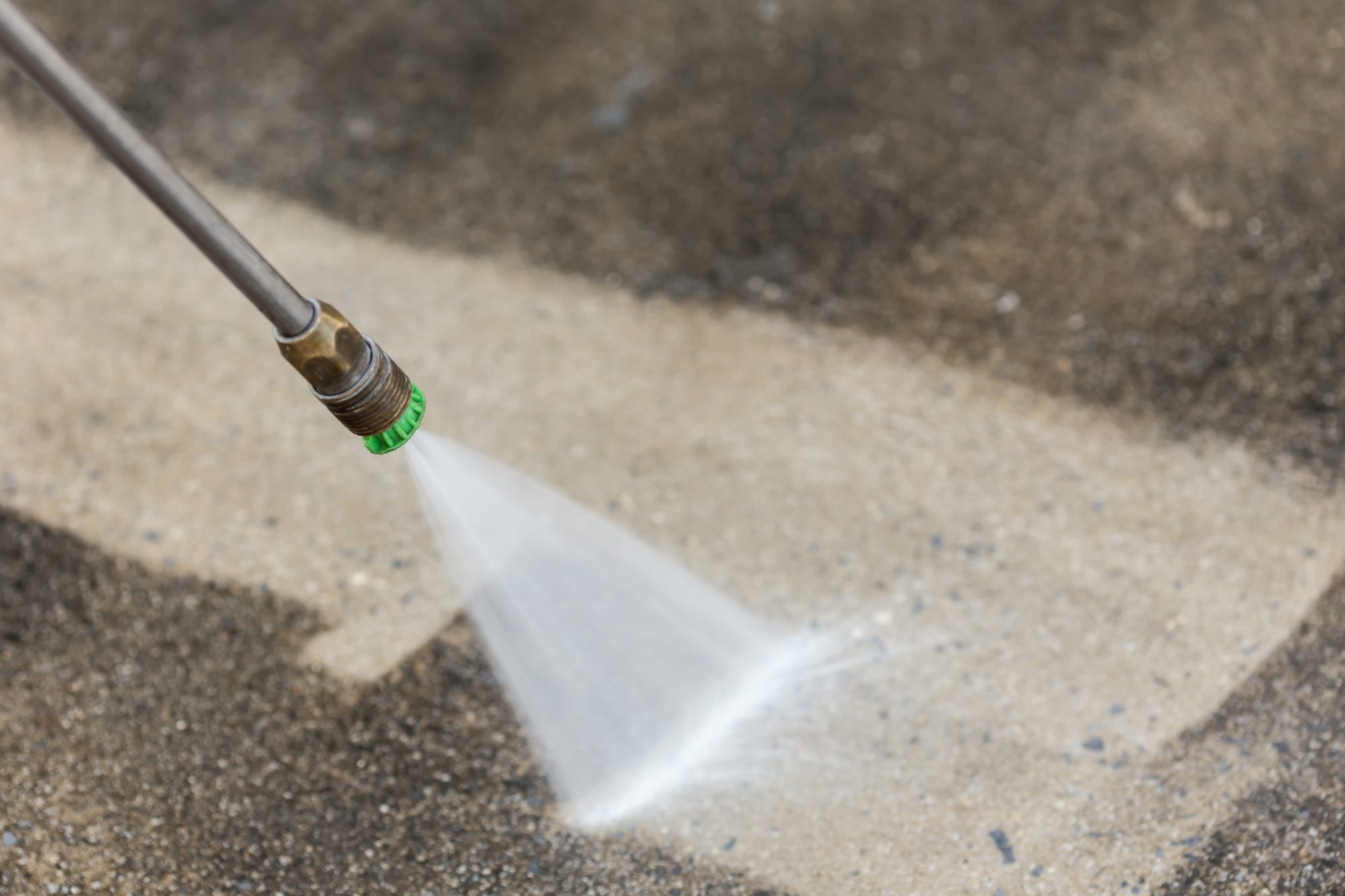
What is about Power Washing?
Power washing is identical to pressure washing, except the water is heated. This can make a big difference, as there are few more powerful grime fighters than a blast of high-pressure water at temperatures that break down organic matter in a flash.
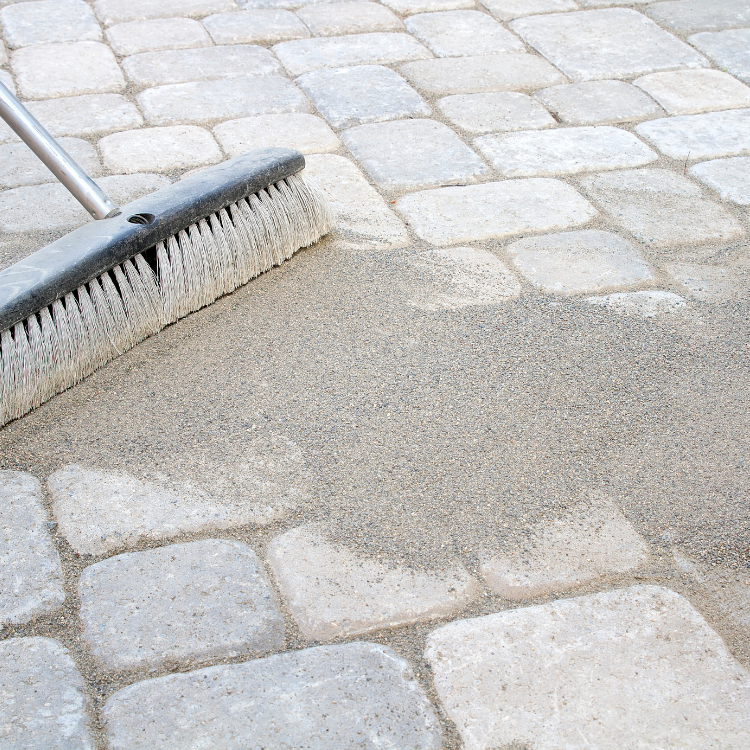
Pavers Re-Sanding
We can transform the look of your pavers. Your pavers will literally look as good as the first day they was laid. However, it is important to understand that the cleaning process is only 80 percent of the job, and it could even be argued that the final part of the job is the most important of all.
We always insist on re-sanding any block paving surface that they work on, and for very good reason. It is a critical component of the process, and failure to re-sand will cause structural problems in the future.
The sand in the brick paver joints serves many essential purposes. It helps keep joints stable, paver’s level, insects out, and plant life from growing between the joints and helps prevent mold.
Sealing Services
Natural Stone
The porous nature of natural stone means it is susceptible to the absorption of liquid, oil, dirt, and grime. No matter whether your home features granite, marble, limestone or any other kind of natural stone floor, leaving it unsealed is a surefire way to speed up any degradation that can happen to the materials over time.
Concrete
Concrete sealing and coating your concrete ensures that you are protecting and maintaining your investment. The high quality sealing from Trusted Building Technologies will keep your concrete looking great for years.
Concrete Sealing is essential for new concrete or the rejuvenation of an existing surface. Think of sealing a concrete like waxing your car; it will improve appearance, keep it from fading and protecting it from stains!
Sealing protects gray, colored, and patterned concrete and is an integral part of the maintenance routine. Sealing concrete can maintain vibrant colours while giving a glossy sheen with various gloss levels available as well as slip-resistant options.
Concrete Sealing provides a high level of stain protection, helping to combat the unsightly stains that can appear from dirt, pet urine, oil, and much more. Sealers keep these elements from penetrating the surface of the concrete, creating a barrier from hard-to-remove stains.
Paver
Sealing your pavers reduces the effects of staining from exposure to the elements while also cutting down the amount of work required from you for maintenance. Pavers Expert, the division of Trusted Building Technologies, can offer high-grade paver sealing for your new patio or for existing pavers that need a bit of restoration.
Paver sealing is a task that is best handled by professionals with the right experience and equipment to ensure that it is done correctly.
Our extensive range of products from these well-known companies provides deep impregnating, penetrating sealers that will ensure the best protection of your paver surfaces possible.
If you’re looking for professional pavers soft washing and sealing in Florida, feel free to contact Pavers Expert today! Call us at 561.836.1140 or contact us online to receive a free estimate.
